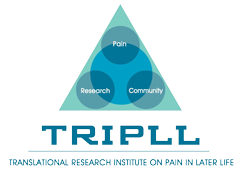TRIPLL: Can you tell us about your clinical work?
Dr. Berman: I mostly take care of patients with chronic kidney disease or those who are on are dialysis. Three months a year I see patients on the in-patient nephrology service.
TRIPLL: What are the challenges working with dialysis patients?
Dr. Berman: What interests me about dialysis patients is that we constantly have to reassess patients as to which treatments are important. There is little guidance on the risks and benefits associated with dialysis and treatment. We have many patients who are very sick and whose life expectancy is measured under a year or two. These are patients with low functional status, poor nutritional status, advanced diabetes or many co-morbidities. A lot of my patients are older, but I can’t stress enough that chronological age is not as important as functional status. Some patients we see are otherwise healthy, may get a transplant, and will live another 30 years. The tricky part is figuring out where patients are on the continuum. As a fellow I remember that patients going in for a CABG had poor outcomes. It is a very important question for us:what indicators can help us understand what treatments are appropriate for our patients? Which treatments are harmful and which are helpful?
TRIPLL: How do you manage patients who suffer from late or end-stage renal failure?
Dr. Berman: With frail dialysis patients, the disease may not be modifiable, unless the patient gets a transplant. Then we need to start focusing on managing the symptoms. I think that’s probably the best thing to do for them. For example, you have a patient with diabetes, on dialysis, with heart failure and lower extremity ulcers. At that point the main thing to do to help the patient is to manage the symptoms since the damage has been done.
TRIPLL: Do you see pain as a challenging symptom in the management of these patients?
Dr. Berman: When we walk through the dialysis unit we get many requests for narcotics to manage pain, for drugs to help people sleep and a lot of complaints about anxiety. However in nephrology, there is no good framework for how to approach these symptoms. There is no guide for what the cause is and how to treat them, and we often have varying degrees of success. Just acknowledging there is a problem would liberate doctors in the same way you would give an end-stage cancer patient anything they need. You would be able to say I don’t know why they are in pain, but I can help them manage it. Management could be through high dose narcotics. In nephrology there is a lot of resistance towards giving patients without a clear diagnosis high doses of narcotics.
TRIPLL: What do you see as next steps for work in pain and nephrology?
Dr. Berman: We do a lot of things for dialysis patients that are based on historic treatment patterns but are not evidence based; a lot of pills and dietary restrictions. The question is: how much are we contributing to the problem? To the best of my knowledge there have not been many randomized trials with dialysis patients to show a positive outcome; meaning that in the handful of studies preformed up until now, it didn’t matter if we intervene or give a placebo. How many things are we doing that, when the study is done, are going to show little to no benefit? We restrict and burden patients with many things, and they may turn out to be not that useful. I am interested in learning what the burden of disease is that we give the patients.
Often dialysis patients are only seen by nephrologists, so bringing symptom management and understanding the disease burden of our treatments will hopefully help other physicians in the hospital understand the symptoms these patients face.
